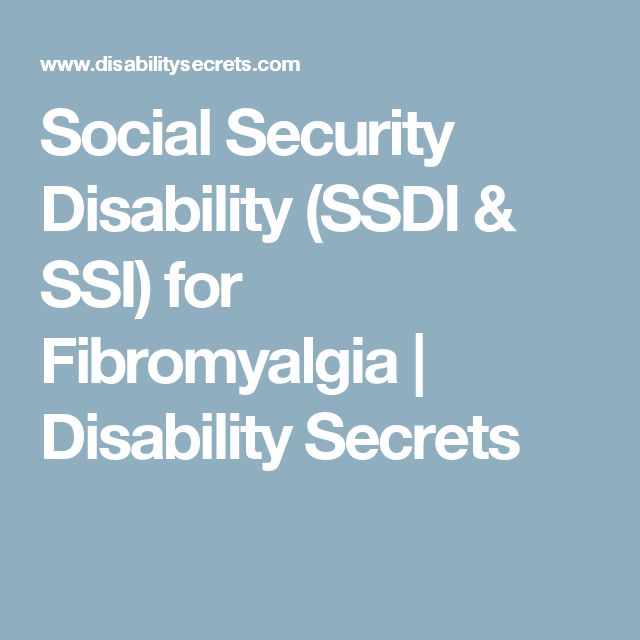Millions of Americans suffer from chronic illnesses that cause significant physical and emotional distress. Fibromyalgia, a condition characterized by widespread musculoskeletal pain, fatigue, and tenderness, is one such illness that can severely impair a person’s ability to work and live independently. For those living with fibromyalgia, obtaining disability benefits can provide much-needed financial assistance and support. However, navigating the disability application process can be challenging, especially for those with invisible illnesses like fibromyalgia. This guide will provide you with essential information and strategies to help you increase your chances of winning a fibromyalgia disability case.

Image: www.pinterest.com
Understanding the Legal Framework for Fibromyalgia Disability Cases
The Social Security Administration (SSA) defines fibromyalgia as a musculoskeletal disorder that causes widespread chronic pain and tenderness. To qualify for disability benefits, you must prove that your fibromyalgia meets the SSA’s listing of impairments or that it is of equivalent severity. The SSA has strict criteria for evaluating fibromyalgia cases, which include the following:
- A history of widespread pain for at least three months
- Tenderness in at least 11 of 18 specific trigger points
- Other symptoms such as fatigue, sleep disturbances, cognitive difficulties, and headaches
Medical Evidence: The Key to Success
The cornerstone of a successful fibromyalgia disability case is solid medical evidence that comprehensively documents the severity and impact of your condition. This evidence should include:
- A detailed medical history that documents the onset, duration, and progression of your pain and other symptoms
- Physical examination findings, including the number and location of tender points and any other physical limitations
- Laboratory test results, such as blood tests and imaging studies, that rule out other potential causes of your symptoms
- Reports from healthcare professionals, including physicians, physical therapists, and occupational therapists, who can attest to the severity of your condition and its impact on your functional capacity
- Your own daily pain diary, which provides a firsthand account of the intensity, duration, and variability of your pain
Building a Strong Case: Additional Considerations
In addition to medical evidence, there are other factors that can strengthen your case:
-
Credible Testimony: Provide clear and concise testimony describing how your fibromyalgia affects your daily activities and work ability. Emphasize the physical, emotional, and cognitive limitations you experience.
-
Vocational Assessment: A vocational assessment can evaluate your residual functional capacity and determine whether you are able to perform any type of work given your limitations.
-
Witness Statements: Statements from family members, friends, or coworkers who can attest to your symptoms and the impact of your condition on your daily life can be valuable evidence.

Image: disabilitytalk.weebly.com
How To Win A Fibromyalgia Disability Case
Appealing a Denial: Don’t Give Up!
Unfortunately, many fibromyalgia disability cases are initially denied. If your claim is denied, do not despair. You have the right to appeal the decision. The appeals process is complex, so it is crucial to seek legal representation from an experienced disability attorney who can guide you through the process.
Throughout the application and appeals process, remember that you are not alone. There are many resources available to assist you, including support groups, patient advocates, and legal professionals who specialize in fibromyalgia disability cases. With persistence, thorough documentation, and a strong support system, you can increase your chances of winning a fibromyalgia disability case and获得您应得的支持和救济。

